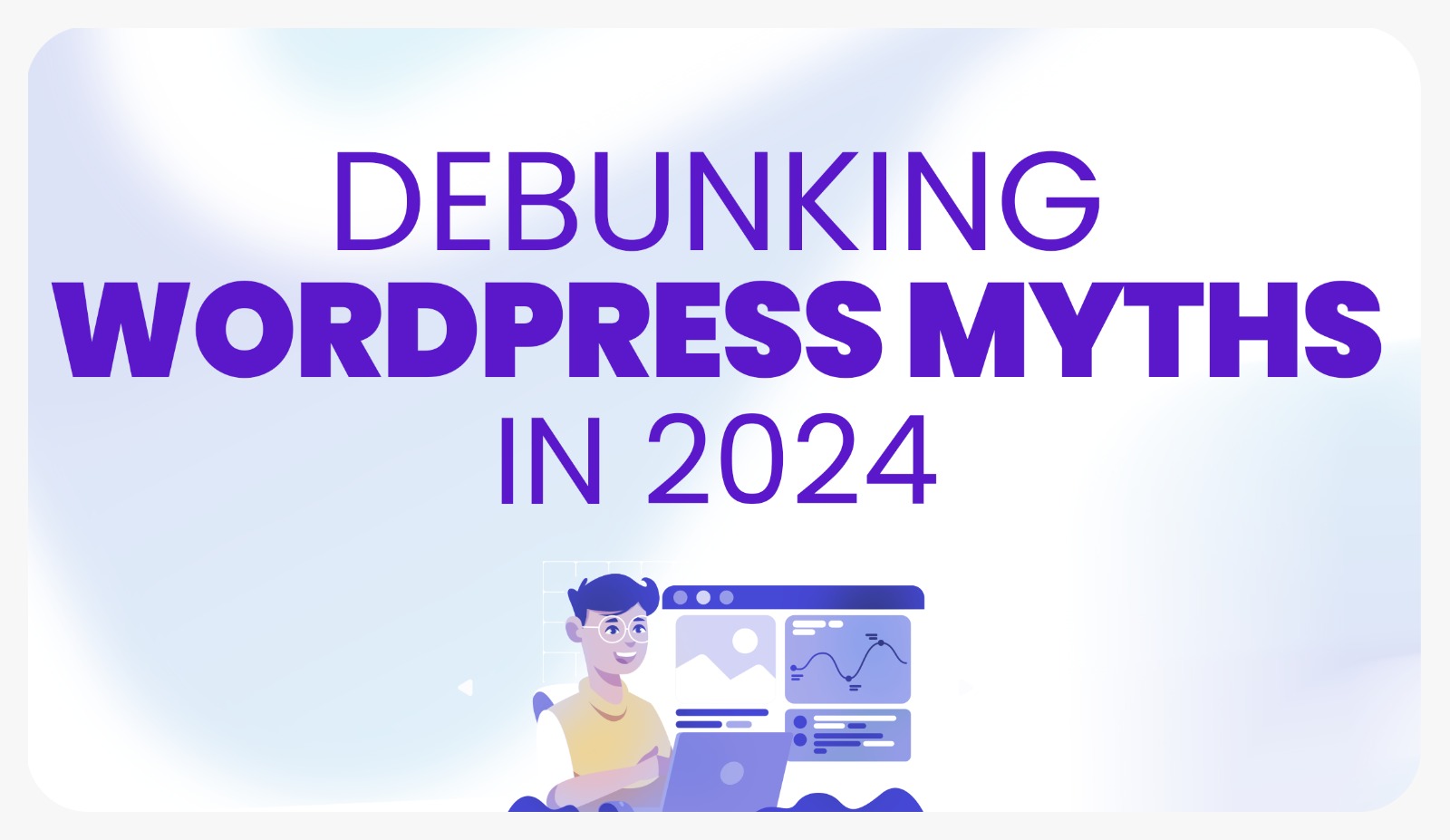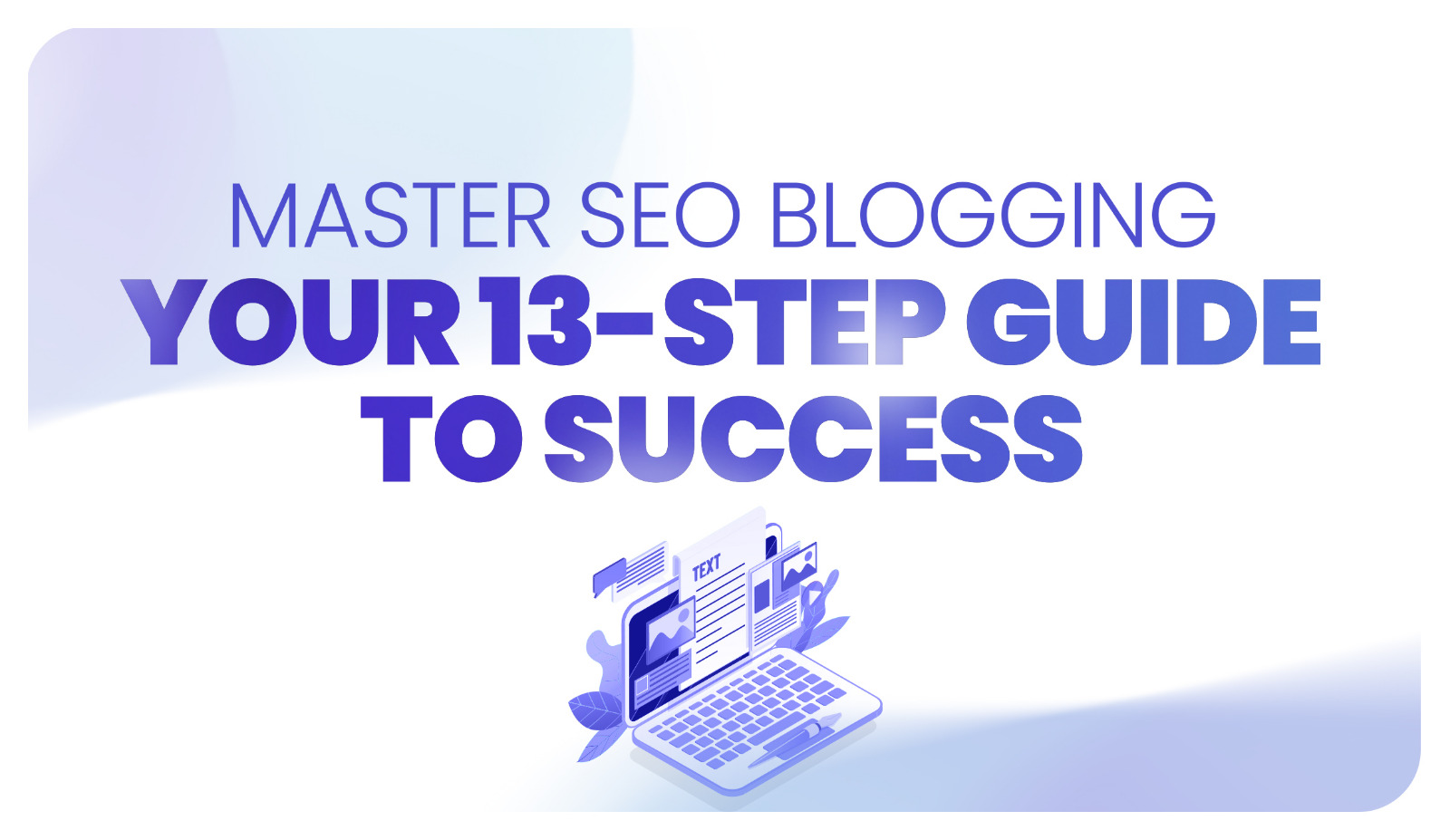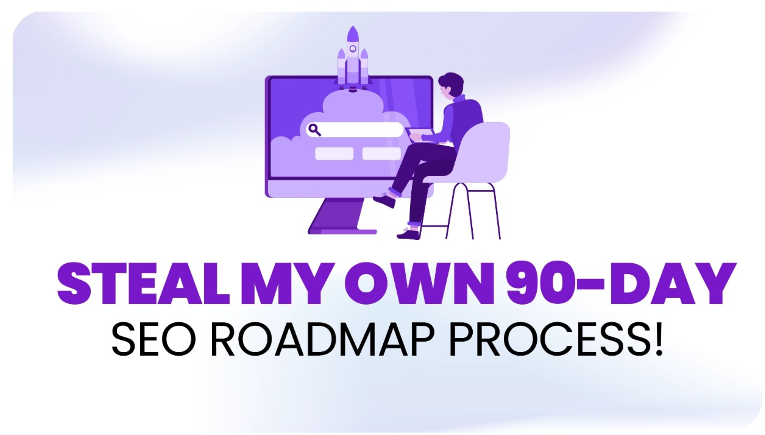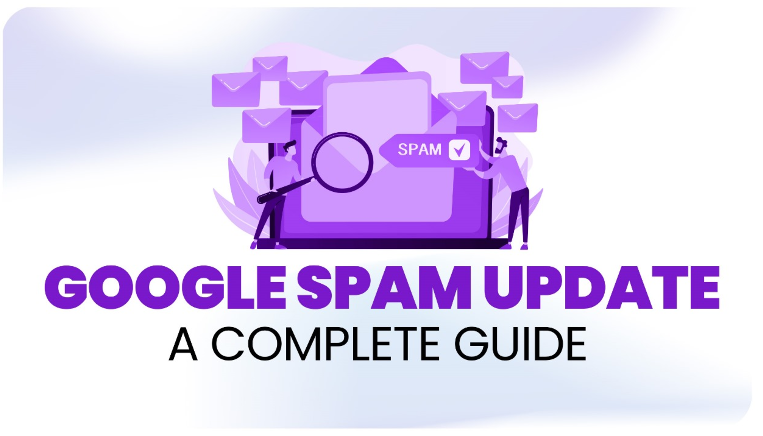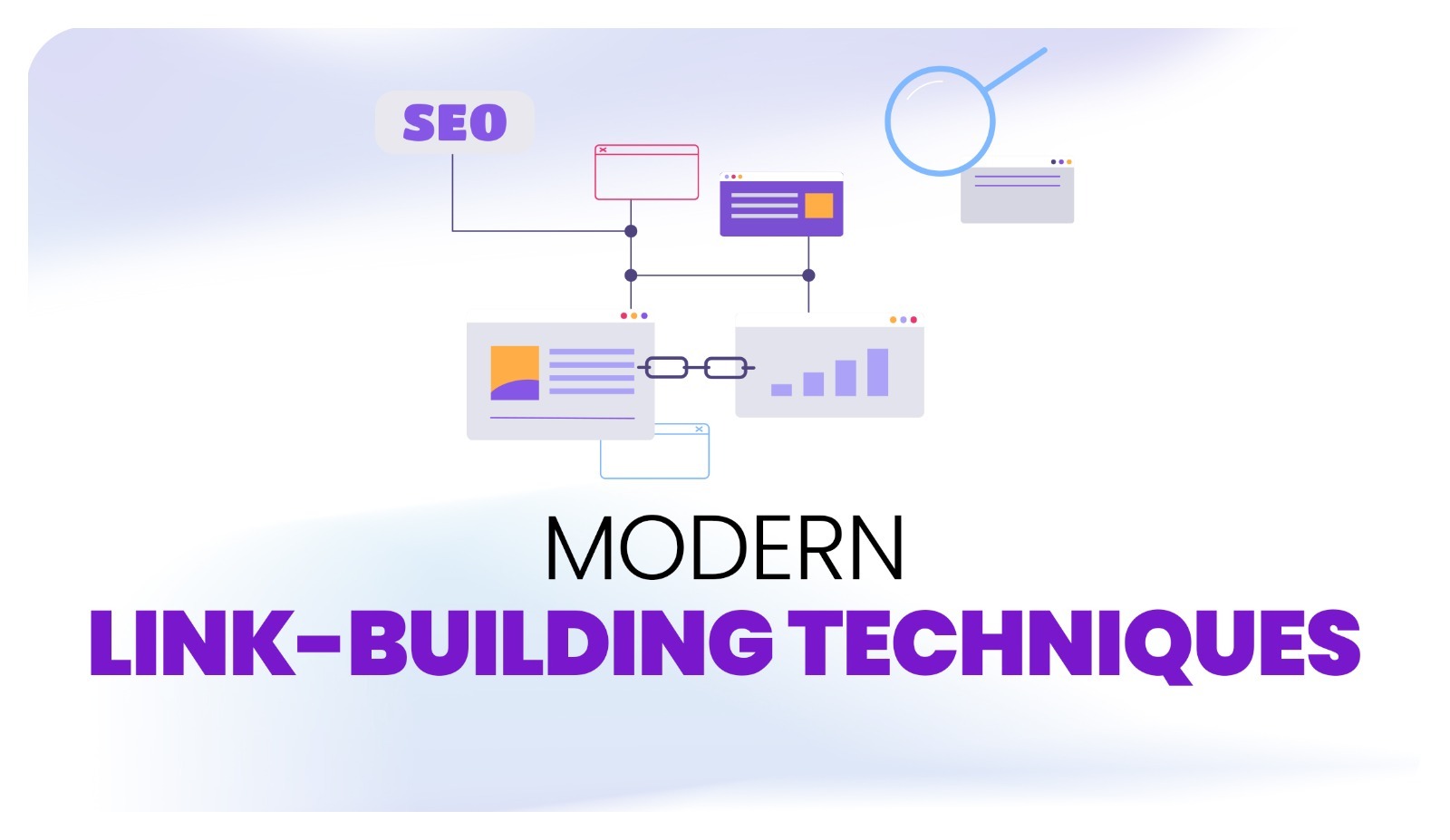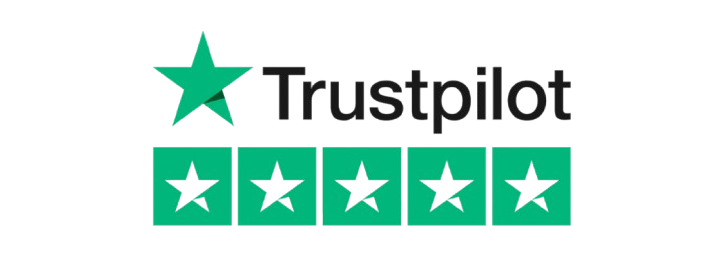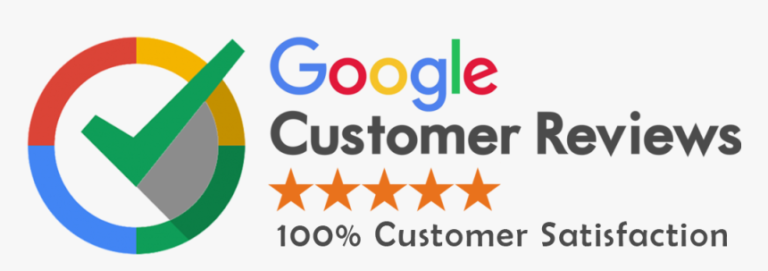WordPress has always been the default option when it comes to designing a website, powering more than 40% of all websites. Nevertheless, a number of misperceptions still exist as to what is possible and impossible with WordPress. Such perceptions mean that businesses may overestimate or under-estimate its ‘‘capabilities’’. Below we review some of the most important myths about WordPress in the year 2024 and expose them with accurate information.
Myth 1: WordPress is Just for Blogs
Reality: A Versatile Content Management System (CMS)
When WordPress was initially launched in 2003 or prior to 2004, it was famous mostly as a blogging tool. This perception early on made many people assume that it could only be used to create personal blog sites . Now, WordPress is a versatile CMS with capabilities to operate big websites for businesses and online mart, portfolios, and even social networks.
Thanks to the thousands of plugins, themes, and sophisticated customization possibilities you can make anything starting with a blog and ending with a corporate site, e-learning portals, or online shops. WooCommerce is a powerful e-commerce plugin, which helps users of WordPress to develop highly effective internet stores. WordPress is powering over 28% of all eCommerce sites by 2024.
Myth 2: WordPress is Not Secure
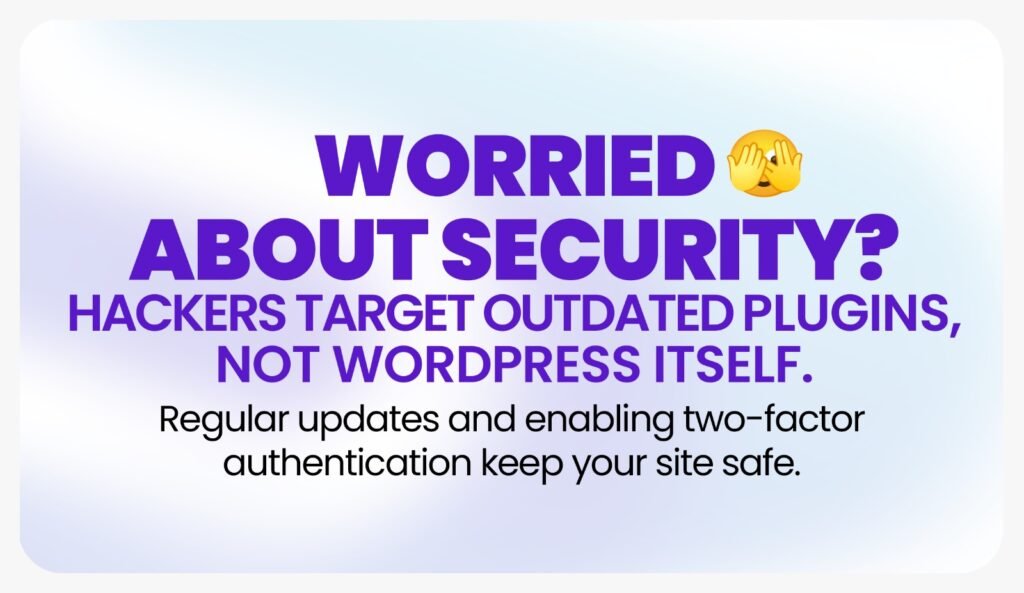
Reality: Security Depends on User Practices
Another frequently used stereotype is the fact that WordPress sites are vulnerable to hacking, meaning that it is not secure for businesses. It has often been said that users of WordPress are easy targets to hackers but WordPress is not at any point vulnerable to hackers. The platform offers advanced security with a devoted team to work on it and releases updates in the core software frequently to close the security vulnerabilities.
- Security issues arise more often due to:
- Outdated plugins or themes.
- Poor password practices.
No updates were incorporated into the core software that forms the skeleton of the whole software.
This is in 2024 and WordPress has made further improvements to make it more secure such as auto updating feature on core and plugins and compatibility with other security tools such as Sucuri and Wordfence. It is, however, important to note that by following the most basic measures of security such as using the correct passwords, updating one’s software, and enabling two-factor authentication among others WordPress sites can be just as secure as any other site.
Myth 3: WordPress is Free, So It Must Be Low-Quality
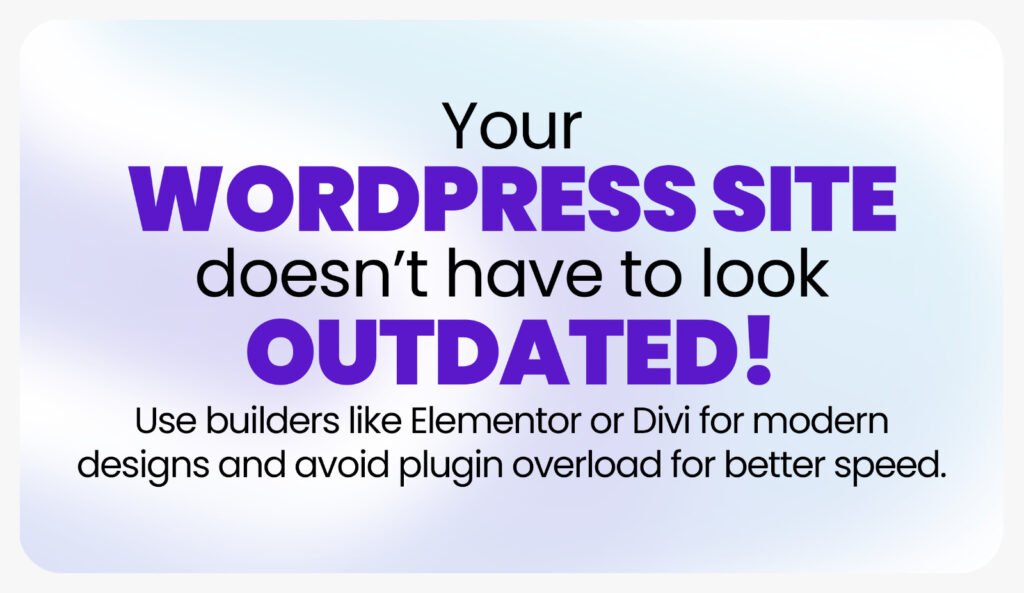
Reality: High Flexibility, With Both Free and Paid Options
For WordPress, it’s important to note that the WordPress software is free of charge under GPL license, but many end up thinking of it as a low-quality platform. The thing is that while the core program is free and open-source, the world around it is full of paid opportunities for customization. While you can use free themes and plugins, free themes and plugins are usually surrounded by paid, high-quality professional themes and plugins.
In 2024, both premium ThemeForest and StudioPress as well as premium plugins like Elementor and WP Rocket enable users to create individual, working websites from scratch without coding. Indeed, many large companies, including The Walt Disney Company and The New York Times themselves, use WordPress for a part of their website.
Myth 4: WordPress Sites Load Slowly
Reality: Proper Optimization Is Key
That brings us to the kind of misconception that has become vintage; WordPress is slow by default, it always has been. It is a fact that WordPress sites can be slow, if not well optimized but problems frequently arise from plugins, images and hosts.
By 2024, the enhancement of the WordPress performance is even easier because of hosting services, caching plugins like WP Rocket, and content delivery networks (CDNs) such as Cloud flare. It also can be recommended to apply image compression tools and apply the technique of lazy loading for increase in page loading rates. Frequency auditors and optimization can guarantee that your WordPress site is as fast as you want it to be.
Myth 5: WordPress is Difficult to Scale
Reality: WordPress is Scalable for Any Business Size
One of the most widespread myths is that WordPress is appropriate only for creation of the small sites and cannot cope with the increased traffic or peculiarities of the site’s functioning. But in the year 2024, WordPress has demonstrated its propensity toward better scalability as facilitated by improved hosting, effective optimization, and enhanced management of the database.
WP Engine and Kinsta are some of the firms that focus on WordPress hosting for sites with millions of users to scale at reasonable charges. Any internet business be it a small business website or a large-scale enterprise site can handle the traffic with WordPress if well managed and optimized.
Myth 6: WordPress Requires Too Much Technical Knowledge
Reality: It’s as Simple or Complex as You Want
Among the myths, the greatest disservice is paid to WordPress due to the false impression created by some people that WordPress can only be used by technicians. Despite having some a web development background might help in getting the most out of it, WordPress is developed to be easily navigated for everyday users.
By 2024, WordPress is even more intuitive as a result of the appearance of Elementor, Divi, or even Gutenberg Block Editor. A basic blog is easy to create and for anything beyond that there is always guidance for users, whether in the form of tutorial, forums and the rest.
Myth 7: WordPress Isn’t Suitable for E-commerce
Reality: WooCommerce Powers Millions of Online Stores
Some people prefer to think that WordPress is not suitable for e-commerce. Nevertheless, with the addition of WooCommerce, WordPress has emerged among the most popular e-commerce platforms across the world. As per a statistic, WooCommerce in 2024 is powering more than 5 million online stores and still holding the market for SMBs tightly.
The use of additional plugins such as Yoast for SEO, Stripe and PayPal for payment processing and Mailchimp for creating online sales through marketing emails, makes Woocommerce facilitate user’s to create and manage complicated online shops. It also incorporates scalability solutions for the e-commerce organizations that are expanding as a part of WordPress solutions.
Myth 8: WordPress Doesn’t Support SEO Best Practices
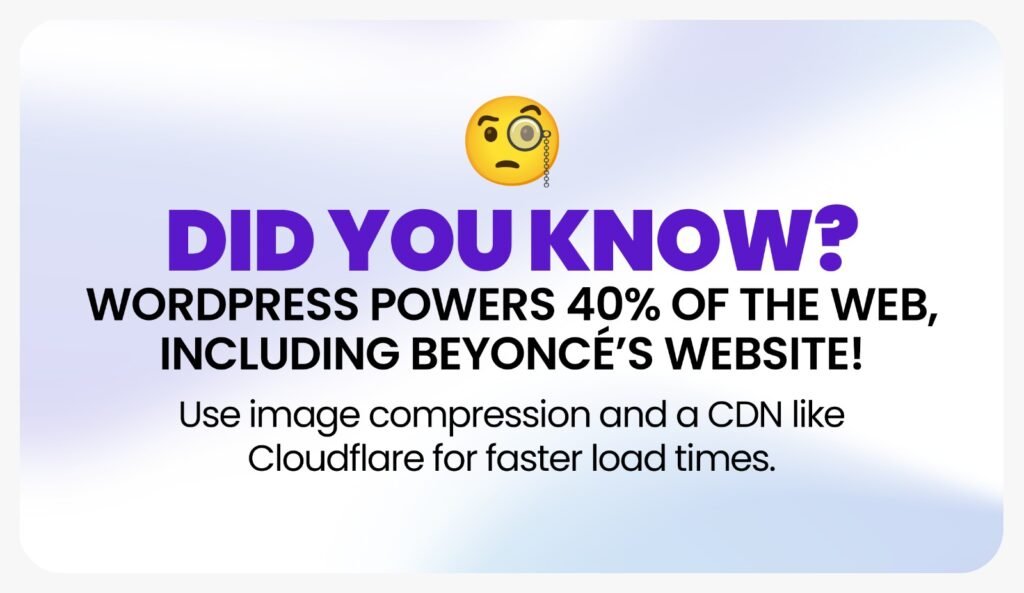
Reality: WordPress is SEO-Friendly Out of the Box
Some even thought WordPress was not good for search engines back then, or so some people thought. Yet in 2024, this is as far away from reality than it could possibly be. There are features that come with WordPress such as the permalinks, title tags, meta descriptions, and mobile-friendliness which are critical for the SEO.
In addition, plugins such as Yoast SEO and Rank Math also make it possible even for novices to use complex SEO practices. WordPress flexibility lets businesses create SEO-optimised content, apply schema markup, and use various tools, such as Google Analytics to monitor performance.
Conclusion
As of 2024, WordPress is still at the top among the CMS platforms, but it is crucial to distinguish myths from true facts. With the facts laid bare like this, companies and website owners will be better placed when deciding whether to work with WordPress or not. Again this system is not just for bloggers or for amateur website designers but it is a serious, reliable and scalable solution for any work that needs to be done on the web in the sense of websites for businesses and enterprises of any scale.
FAQS
Is WordPress only for blogging?
Actually, WordPress is one of the most popular and adaptable CMS, which allows creating business websites, online shops, portfolios, and others.
Is WordPress secure for business websites?
Yes, WordPress is very secure if you use strong passwords, install the latest versions of wordpress, and use measures such as two factor identification.
Does WordPress offer free themes and plugins?
Yes, there are free and paid theme/plugins available on WordPress depending on requirement and affordability.
Why do people think WordPress sites are slow?
There are a number of reasons as to why your WordPress site is slow including failed optimization such as images, or numerous plugins. Thus the common misconception that WordPress is slow needs to be tackled so those who wish to create a high performing website take WordPress into consideration.
Can WordPress handle high traffic?
Yes, WordPress can scale to handle millions of visitors with the right hosting and optimization.
Is WordPress difficult for beginners to use?
No, I don’t think so because the WordPress website has several drag and drops builders like Elementor, Divi, etc. Even a non developer can easily build a website on WordPress.
Is WordPress suitable for e-commerce?
Yes, with WooCommerce, WordPress powers millions of online stores globally.
Does WordPress support SEO?
Indeed, WordPress is SEO friendly and has plugins such as Yoast SEO that a website owner can use to improve on SEO.
Is WordPress free to use?
WordPress for beginners software is open platform, however, some add-ons may cost – themes, plugins, hosting, and so on will be needed depending on the type and complexity of the site.
Can WordPress handle large websites?
After reading this article, I have come to the conclusion that, when well managed and hosted, WordPress is more than capable of powering large complex sites.


